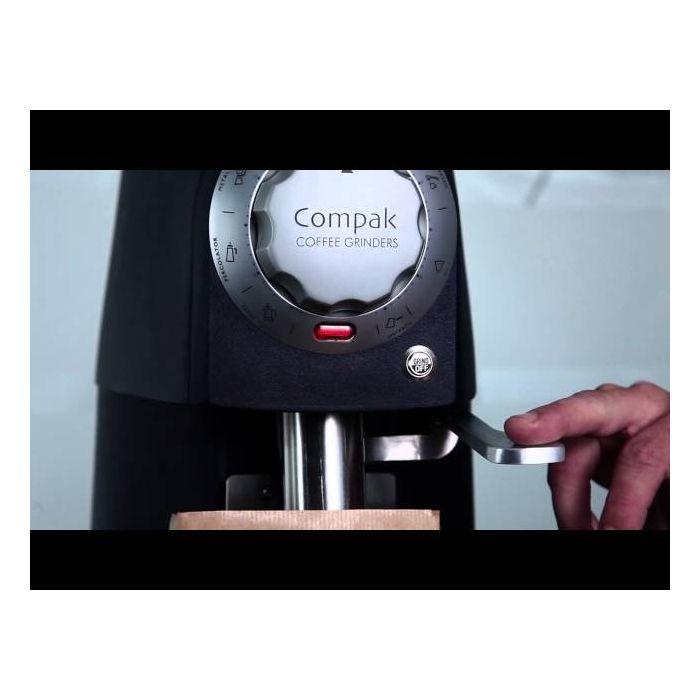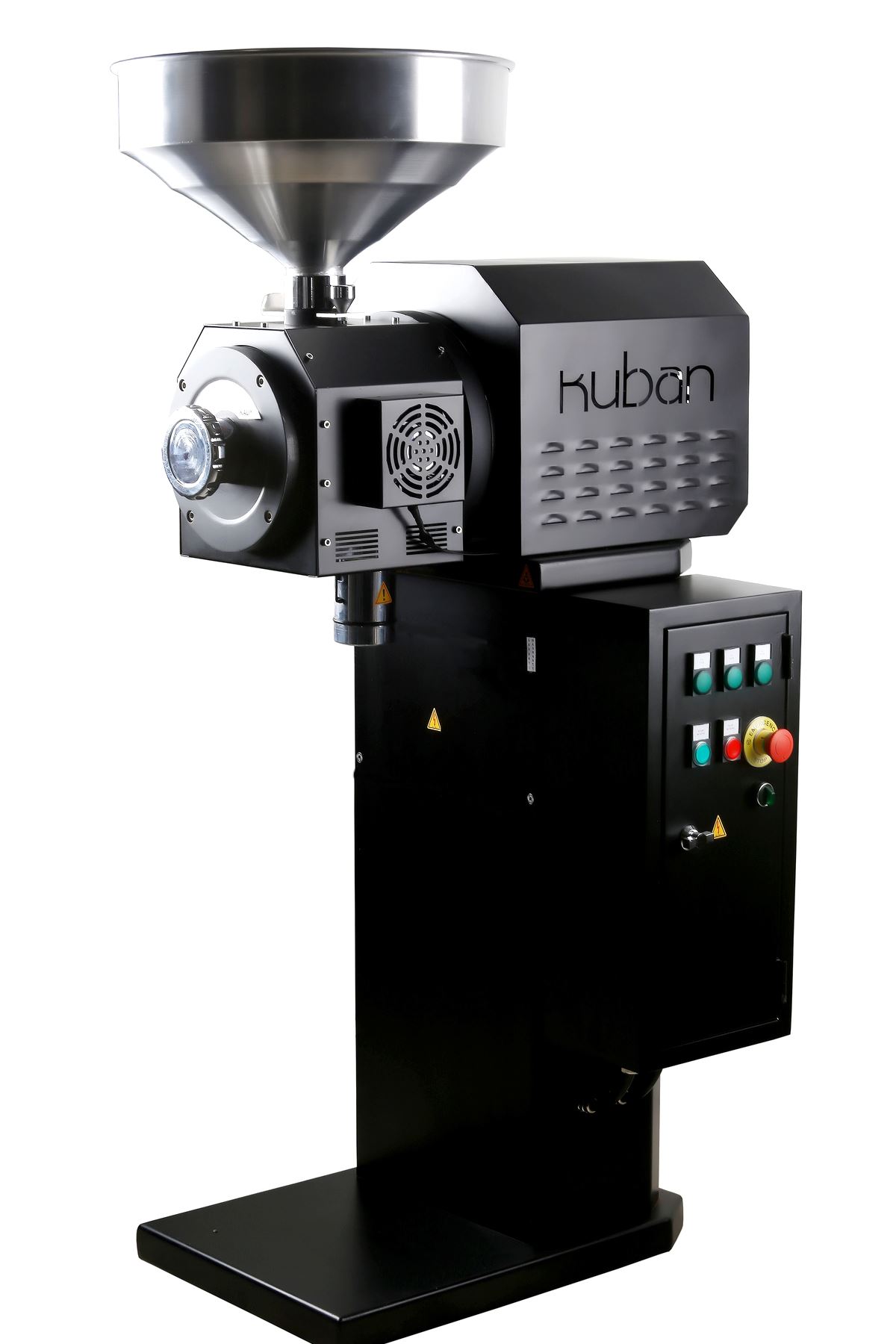Industrial Coffee Grinder: Cost, Durability, and Performance Examined
Industrial Coffee Grinder: Cost, Durability, and Performance Examined
Blog Article
Industrial Coffee Mill Guide: Boost Effectiveness and High Quality
In the competitive landscape of coffee production, choosing the ideal commercial coffee grinder plays a crucial role in boosting both efficiency and item high quality. Understanding the subtleties of various mill kinds and crucial attributes-- such as personalized work settings and robust building and construction-- can significantly affect the final taste account of the coffee. In addition, the optimization of the grinding process, paired with persistent maintenance, is necessary for maintaining efficiency in time. As we discover these critical components, it ends up being apparent that the effects extend past plain devices option, affecting overall service success in manner ins which require closer exam.
Comprehending Grinder Types
When picking a commercial coffee grinder, comprehending the various types offered is important for optimizing both taste extraction and operational effectiveness. The two key sorts of grinders are blade mills and burr mills. Blade mills use sharp blades that chop coffee beans into inconsistent dimensions, causing uneven extraction and potentially unwanted tastes. While blade grinders are commonly a lot more ideal and budget-friendly for small-scale operations, they are generally not recommended for commercial usage.

Inevitably, picking the best sort of grinder is integral to preserving high quality and performance in coffee production, making it essential for organizations to spend in high-grade burr mills for optimum results.
Key Functions to Consider
Choosing a commercial coffee mill calls for careful factor to consider of a number of vital functions that can substantially influence both efficiency and the total coffee experience. One of the key aspects to examine is the grinding device. Burr mills are normally favored over blade mills, as they supply a consistent grind dimension, which is essential for optimum removal and taste.
One more important function is the mill's capacity. A functional grinder with several settings permits you to customize the grind size to different brewing methods, improving the coffee's flavor account.
The building material additionally contributes in longevity and maintenance. Stainless steel components frequently offer longevity and are much easier to clean, which is crucial for maintaining hygiene standards. Finally, evaluate the grinder's noise level, specifically in a hectic café or manufacturing setting, where too much noise can be disruptive. Buying a grinder that balances these attributes can considerably improve both functional efficiency and the top quality of the coffee served.
Optimizing Grinding Refine
To achieve the best cause coffee prep work, optimizing the grinding process is crucial. The work dimension substantially influences extraction, flavor, and general quality of the brewed coffee. Different developing approaches need specific work sizes; for circumstances, coffee requires a fine grind, while French press necessitates a coarse structure. Recognizing the partnership in between work dimension and developing technique is the primary step in optimization.


In addition, keeping track of the grinding speed can maximize the procedure. Slower grinding commonly produces much less heat, protecting fragile flavors and aromas. Conversely, much faster grinding may produce extreme warmth, adversely affecting the coffee's top quality.
Maintenance and Care Tips
Correct maintenance and treatment of industrial coffee grinders are crucial for guaranteeing optimal performance and long life. Normal cleaning is the structure of maintenance; deposit build-up can impact flavor and grinding efficiency. It is recommended to cleanse the grinder after each use, cleaning down the exterior and removing any coffee grounds from the burrs.
Furthermore, inspect the grinding burrs for deterioration. Boring burrs can jeopardize you can look here work consistency, so they ought to be changed as needed. Industrial Coffee Grinder. Occasionally adjusting the grinder is likewise important, as this keeps the wanted grind dimension for various brewing methods
Lubrication of moving parts must be carried out according to the producer's specs, as this reduces rubbing and lengthens the life of the devices. It is important to make use of food-grade lubricating substances to make sure safety and security and conformity with health policies.
Last but not least, maintain the mill in a dry and stable environment to stop rust and corrosion. By sticking to these maintenance and care ideas, operators can improve the effectiveness of their commercial coffee mills while making sure high-quality outcome and prolonged functional life.
Return on Investment Evaluation
Evaluating like it the roi (ROI) for industrial coffee mills is critical for companies seeking to maximize their coffee manufacturing abilities. A comprehensive ROI analysis aids establish the economic feasibility of buying high-grade mills, allowing companies to consider the first expenses versus potential gains.
To perform a detailed ROI analysis, organizations need to consider numerous key variables. Analyze the acquisition rate of the grinder, including installment and any type of essential adjustments to existing infrastructure. Next, compute functional costs, consisting of power intake, maintenance expenditures, and labor efficiency improvements. High-performance mills usually result in lowered grinding time and enhanced throughput, which can considerably boost productivity.
Furthermore, take into consideration the influence on product quality. Industrial Coffee Grinder. Superior grinders produce a more constant grind dimension, which can improve flavor accounts and consumer contentment, eventually driving sales. By boosting the top quality of the end product, organizations can warrant higher pricing, leading to boosted income
Conclusion
In read this article summary, an industrial coffee grinder plays an essential duty in boosting both performance and item high quality within coffee manufacturing. By choosing premium burr grinders furnished with necessary attributes such as adjustable work settings and long lasting building and construction, companies can ensure optimum taste extraction. Normal upkeep is critical for maintaining mill efficiency and making the most of consumer fulfillment. Inevitably, the calculated investment in a reliable grinder adds dramatically to enhanced profits and competitiveness in the coffee market.
In the competitive landscape of coffee manufacturing, choosing the ideal commercial coffee mill plays an essential function in boosting both performance and item high quality. The 2 key types of mills are blade mills and burr mills. Within the burr mill group, there are level burr grinders and conical burr mills, each with its benefits. Burr grinders are generally chosen over blade mills, as they give a consistent work size, which is vital for optimal extraction and taste.
In recap, an industrial coffee mill plays a crucial function in improving both performance and item high quality within coffee manufacturing.
Report this page